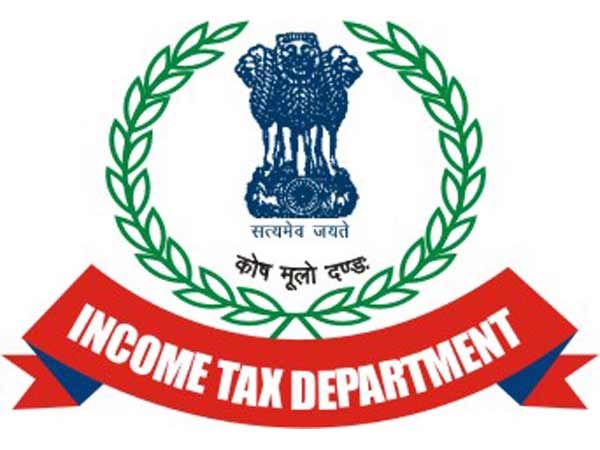1. If you are a Director in private or public limited or One Person Company (OPC) and not reported same in the ITR :
A Director as defined in the Companies Act 2013 has to disclose all its directorship in his/her individual ITR as mandatory information in the prescribed ITR Form. The column details that are required to be filled in are Name of the Company in which you are Director, Type of the Company, PAN of the Company, Whether the company shares are listed or unlisted and lastly your Director Identification Number (DIN).
A Director may be an Independent Director, Nominee Director, Alternate Director or Additional Director or any other Director as designated by the company.
Say Mr X is a Director in 10 Companies he has to disclose details of being Director in all 10 companies as a mandatory requirement of Income Tax Department.
2. If you are a shareholder of any unlisted company shares and not have reported same in the ITR.-
Income Tax has notified in its form to provide all the unlisted shares details in your ITR form to be disclosed which you have been holding. The form asks you details such as name of the company, Type of the company, PAN of the Company, Opening Balance of such company shares, shares acquired during the year, shares transferred during the year, closing of such company shares.
For Example: Mr X acquired Paytm shares which are unlisted currently or Chennai Super Kings (CSK) from the off market transactions he/ she would have to disclose same in its ITR. Taxpayers who have launched their startup companies, incorporated new companies holding unlisted shares should report the same in their Individual ITR’s.
3. If you have a share trading business.-
Even though there are 4-5 crores of active share trading accounts in India as reported by regulatory agencies very few people declare income from the share trading activities. For the same purpose Government of India has put the compliance burden on each Depository (CDSL & NSDL) which are now responsible to report for each share transfer activities which may include sale or purchase or transfer of any securities such as Units of Mutual Funds, Shares, Unlisted Shares, Bonds, Debentures, Preference Shares or any other class of securities as notified which will also be reflected in your 26AS.
Share trading business may include intraday transactions as speculative business, future and options trading, trading of securities. If you have not reported your FY 2019-2020 share trading business transactions in the Balance Sheets and under reported your profits, from now on particularly from FY 2020-2021 these transactions are being reported by the Depository which might get you a Income Tax Notice as some of your holdings will form part of your Opening Stock as shares or securities For FY 2020-2021 which you have not reported in previous ITR Fillings.
So you might need to give a clarification to the Taxation Department.
Many Housewives having PAN and doing Share Trading Business should consider viewing there 26AS and tax liabilities arising due to same.
4. If you have invested in shares and keeping them in your long term portfolio-
A person holding shares in his demat and not reporting its gains and losses should be careful to submit all information in a proactive manner as now Government of India has put the compliance burden on each Depository (CDSL & NSDL) which are now responsible to report for each share transfer activities which may include sale or purchase or transfer of any securities such as Units of Mutual Funds, Shares, Unlisted Shares, Bonds, Debentures, Preference Shares or any other class of securities as notified which will also be reflected in your 26AS.
Your submissions will help you classify your gains or losses in identifying long term and short terms gain or loss which can further be taxed and carried forward accordingly. So it would be best to revise your FY 2019-20 reflecting your share transactions, as FY 2020-21 onwards your depository shall report all sale purchases.
5. If you are a Partner in any Partnership Firm and have not disclosed the same while filing the Individual ITR –
Income Tax Payers often don’t report their Partnership Details which are asked in the ITR Form. While getting Partnership Deed Registered and obtaining PAN for the same the TIN (Tax Information Network) also considers PAN and aadhar of each partners as given in the deed. So the Income Tax Department has information of your Partnership Firm ITR that you have not disclosed your partnership details as mandatorily required to be reported.
Schedule IF details are to be filed which seeks following information S.No, Name of the Firm, PAN of the Firm, Whether the firm is liable to Audit, Whether Section 92E is Applicable, Percentage Share of Profit in Firm, Amount of Share Profit in Firm, Closing Capital Balance in the Firm as on 31st Mar.
6. If your Reported GST Data and Income Tax differs as per 26AS –
A Business person has to ensure that his/ her business outwards supplies as reported in GSTIN are in reconciliation with the Income Tax Turnover. Any difference in the reported supplies and income tax turnover may lead to issuance of Notice by departments.
7. If your deductions have not been claimed properly –
Deductions with respect to Chapter VI A which provides investment linked deductions u/s 80C medical expenditure deductions u/s 80D series and House Interest Deduction u/s 80EE, Interest Paid on Purchase of Electric Vehicle u/s 80EEB, Interest on FDR Deductions u/s 80TTB for senior citizen. Claiming these deductions properly with consultation from tax experts may even give you tax refunds.
8. If you have not reported Exempt Income Details –
Taxpayers often forget to disclose their tax free income such as PPF Interest, EPF Interest, Dividend Income (now Taxable), other allowance and exempt perquisites, profits from partnership firms, Incomes falling under the exempt category as per Sec 10 of Income Tax Act, 1961.
9. If you have not provided correct Agricultural Income Details –
In the case when your agricultural Income is Rs 5 Lacs(Net) or more during the reporting period you are required to provide additional details which are S. No., Name of District along with Pin code in which agricultural land is located, Measurement of Agricultural Land in Acre, Whether agricultural land is owned or leased, Whether agricultural land irrigated or rain fed.
10. If you have not provided Clubbing Income details of your Spouse, Minor Child etc in terms of Sec 64 of Income Tax Act, 1961
Any income arising to spouse by way of transfer income or to your minor child in form of interest or other forms of income should be clubbed originally to the income of transferor income. Schedule SPI in your Income Tax forms requires to furnish S.No., Name of the Person, PAN of the Person, Aadhar Number of the Person, Relationship, Amount in Rs and Head of Income in which it is included.
11. If you have not reported Investments made in Infrastrucure Funds, Real Estates Infrastructure Funds etc. –
Recently we have seen many InvITs and REITs being listed in the Secondary Markets. Subscribers to these units InvITs & REITs are required to report information under Schedule PTI (Pass through Income details) from business trust or investment fund as per section 115UA, 115UB.
The details asked in this schedule are Sl., Investment covered by section 115UA/115UB, Name of Business trust/ Investment trust, PAN of Business Trust/ Investment Trust, Sl, Head of Income, Current Year Income, Share of Current Year Loss distributed by Investment fund, Net Income/ Loss, TDS on such Income amount, if any.
The subcribers of IndiGrid InvIT, IRB InvIT, PowerGrid InvIT, Brookfiel REIT, Embassy Office, Mindspace REIT and other private INVIT’S & REIT’S have to report in this particular schedule.
12. If you have not reported all your bank accounts whether current, savings or dormant
– A person has to disclose all its bank accounts whether savings or current account in the ITR. He/ she may have to select in which particular account he or she wants to receive tax refund.
Conclusion
A person filing ITR must be diligent enough to ask all the information above and submit it in a correct manner to the department with full honesty. As the Income Tax Department in recent times have signed multiple data sharing agreements with regulatory bodies such as SEBI (Securities Exchange Board of India), MCA (Ministry of Corporate Affairs), GSTIN (Goods and Service Tax Information Network), CBIC (Central Board of Indirect Taxes and Customs) to capture maximum information about the taxpayers and correlate the information as provided by them to find any discrepancies which may lead to issuing of Notices to the taxpayers.











